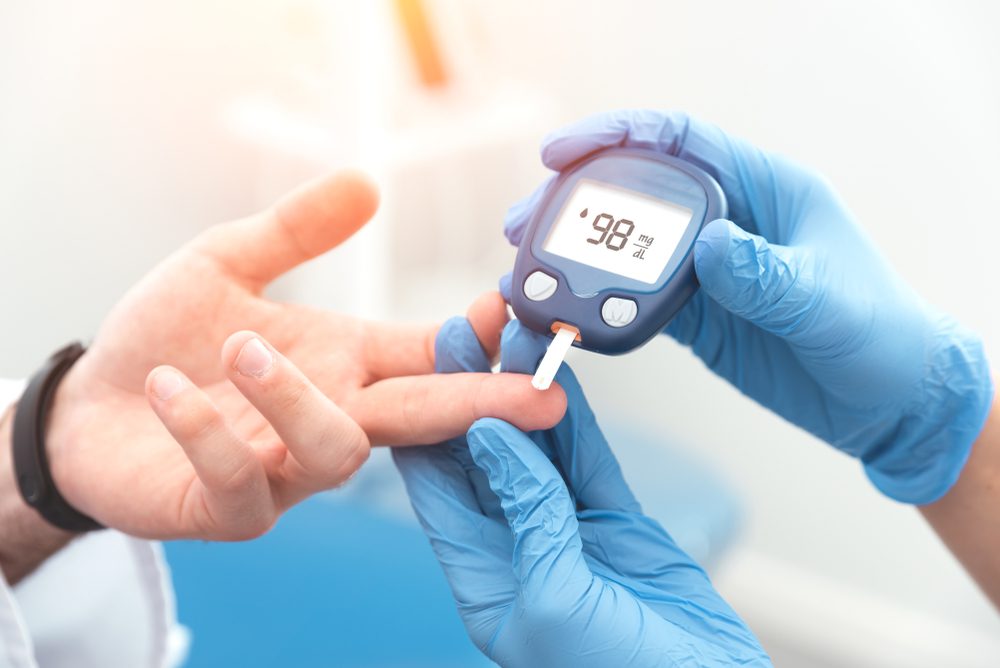Let’s talk about the most common diseases mistaken for Alzheimer’s!
Alzheimer’s disease is one of the most popular health issues, with more than 50 million people suffering from it worldwide. This disease is known for affecting patients’ memory and judgment, and it progressively worsens.
While many people associate confusion and memory loss with dementia, experts say that many common diseases are often mistaken for Alzheimer’s. As you probably know, there are many forms of dementia, and one of them is Alzheimer’s. Both mental and physical health are important for an individual, and knowing more about your symptoms can help you better understand your health issue and therefore act accordingly.
So, without further ado, let’s talk about all the popular diseases mistaken for Alzheimer’s! Here they are:

Dementia and Alzheimer’s disease
According to doctors, any cognitive impairment or memory loss brought on by changes in the brain is called dementia, and Alzheimer’s disease is only one of its types. Several other medical conditions, including a buildup of fluid in your brain, Parkinson’s disease, and stroke, can also impair your memory.
If you notice any symptoms that worry you, you should immediately see a doctor. To diagnose your condition and provide you with treatment, they will perform a comprehensive examination that might involve brain imaging, neurological testing, and the collection of a blood sample for analysis.
1. Urinary Tract Infections (UTI)
Urinary tract infections, shortly known as UTI, are one of the common diseases mistaken for Alzheimer’s. Bacteria can occasionally create a UTI, which can spread to your bladder or kidneys when they get into your urethra, the channel that urine passes through when you use the toilet.
Certain people, particularly those who are older, are more likely to experience a sudden onset of symptoms resembling Alzheimer’s disease. You can become agitated, disoriented, tired, or find it difficult to focus. In more severe cases, some people experience hallucinations, thinking they see or hear things that nobody else does.
If you experience any of these scary symptoms, you should check in with your doctor ASAP. You’ll have to take a urine test to see whether you have a UTI or not, and in case you do, your healthcare provider will probably prescribe you antibiotics to treat your infection.
2. Depression
Depression is another one of these common diseases mistaken for Alzheimer’s. When you suffer from depression, you have a hard time focusing or remembering things. Since your brain doesn’t feel its best, you might also sleep too little or too much, have episodes when you feel hopeless, and avoid spending time with the people you love.
Patients who suffer from Alzheimer’s disease can also experience the same things, which is why many people mistake these two. If you experience any of these symptoms, schedule an appointment with your doctor and talk about what you feel and notice in your mind and body. They will help you with the proper diagnosis and treatment.
…Did you know that diabetes is also one of the common diseases mistaken for Alzheimer’s? Keep reading to discover more about it!

3. Diabetes
Patients who suffer from diabetes can have a hard time keeping the optimum balance of blood sugar and insulin in their bloodstream. If your blood sugar levels drop too low, your brain and body don’t have enough fuel to do their job. This is known as hypoglycemia.
If it affects you daily, it might be a severe condition, and you’ll experience difficulties tackling easy tasks. In extreme cases, people seem drunk, although they didn’t consume alcohol, are clumsy, and can even faint.
Sometimes, you might feel instant relief if you drink or eat something high in healthy sugars. However, if that doesn’t help (even for a few hours), you should immediately seek medical help.
4. Thyroid disease
Let’s continue with these diseases mistaken for Alzheimer’s because we have many important things to talk about.
The thyroid is a little gland at the front of your neck that is in the shape of a butterfly. It produces hormones that regulate how well your body uses food as fuel and support the function of your organs. According to doctors, an overactive thyroid might impact your psychological well-being.
When your gland doesn’t produce enough thyroid hormone, you suffer from hypothyroidism, which means that your body’s systems operate too slowly. This might impact your creativity and memory, and you might even experience trouble remembering something that happened recently.
On the other hand, when your thyroid hormone production is excessive, it means you have hyperthyroidism. As you can guess, this might affect your ability to concentrate, and you might have episodes of anxiety and depression. You should immediately seek medical help because thyroid is one of the many diseases mistaken for Alzheimer’s.
5. Lyme disease
Certain ticks are carriers of dangerous bacteria that can enter your body through bites. This leads to an autoimmune condition known as Lyme disease. Long-term bloodborne bacteria can impact your nervous system and short-term memory.
One of the most common symptoms people with Lyme disease experience is brain fog. It means that you could have difficulties following what other people say, you can’t focus, and your basic tasks need extra attention. Unfortunately, symptoms can take up to a few months or even years to show after a tick bite. Even though antibiotics can treat Lyme disease, symptoms can still show up, which is why it’s important to go to the doctor ASAP.
…Keep reading to discover other common diseases mistaken for Alzheimer’s!

6. Vestibular disorders
Vestibular dysfunction is when there’s a problem with your body’s balance system. This can happen due to issues in the vestibular system of your inner ear, the central nervous system, or sometimes both.
The reason why this is one of the diseases mistaken for Alzheimer’s is because it triggers issues with equilibrium and, frequently, cognitive performance. Meniere’s illness, labyrinthitis, and vertigo are a few vestibular illnesses. These shared traits point to a complicated interaction between vestibular impairment and cognitive decline, so reach out to your doctor in case you experience any of these symptoms.
7. Vitamin B12 deficiency
Even though this isn’t technically a health issue, we’ll put it along with these common diseases mistaken for Alzheimer’s because it can cause severe problems in the long run. According to experts, when you don’t have enough vitamin B12 in your body, you might feel lost or easily turned out. In some extreme cases, people also report feeling tingling in their legs and arms.
Your body can’t produce vitamin B12 on its own, but it needs it to form DNA, neurons, and red blood cells. One of the best ways to get the much-needed vitamin B12 is through diet, which is why it’s important to consume healthy and nutritious foods. While this vitamin is highly present in animal sources, vegetarians and vegans can get it from other foods, such as tempeh, fortified cereals, nutritional yeast, plant-based milk, eggs, beet, yogurt, spinach, shiitake, Swiss cheese, nori, and, of course, supplements such as these.
However, some people’s diets don’t contain enough B12. This might be the case if you suffer from an illness that interferes with the way your body breaks down food, such as Crohn’s disease or celiac disease. Drug use for heartburn can potentially be problematic for this vitamin, so talk to your doctor about it. To help your body better absorb vitamin B12 from your diet, it needs enough stomach acid. Make sure you ask a specialist for a B12 test so you can be certain everything’s all right.
Do you know of any other diseases mistaken for Alzheimer’s? Let us know in the comments below! If you enjoyed reading this article and would like to check out something else from Healthy Reads, here’s a helpful post for you: 10 Foods You Should Never Eat As Leftovers






